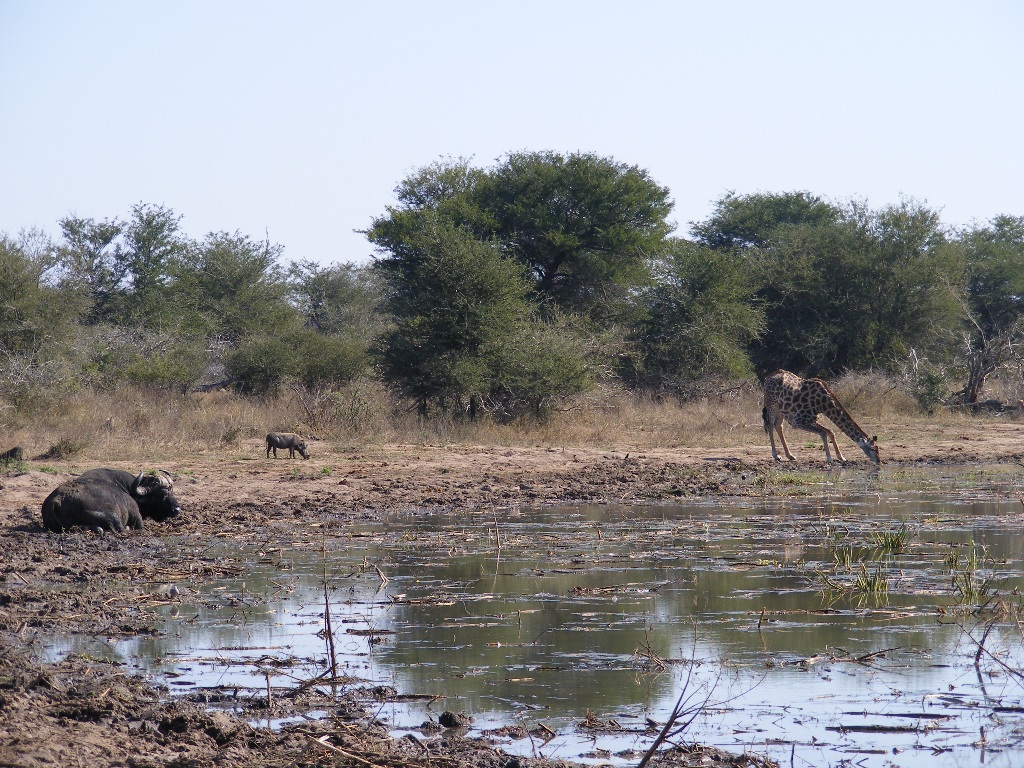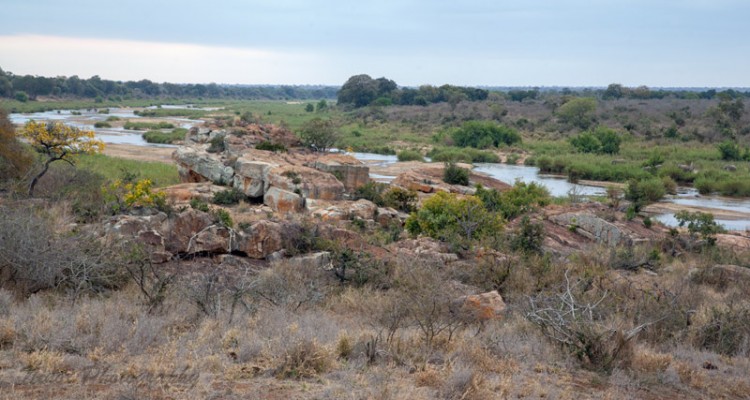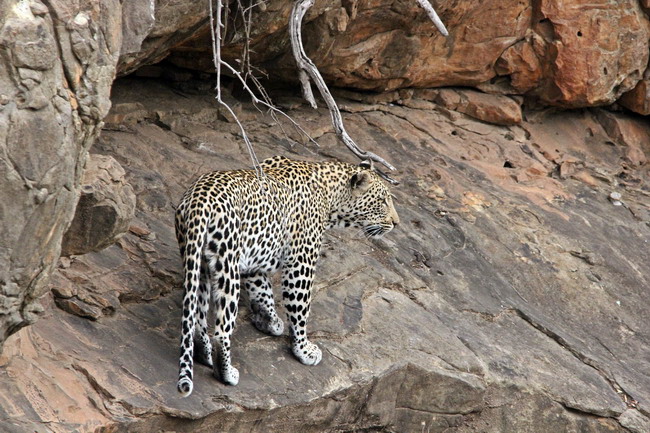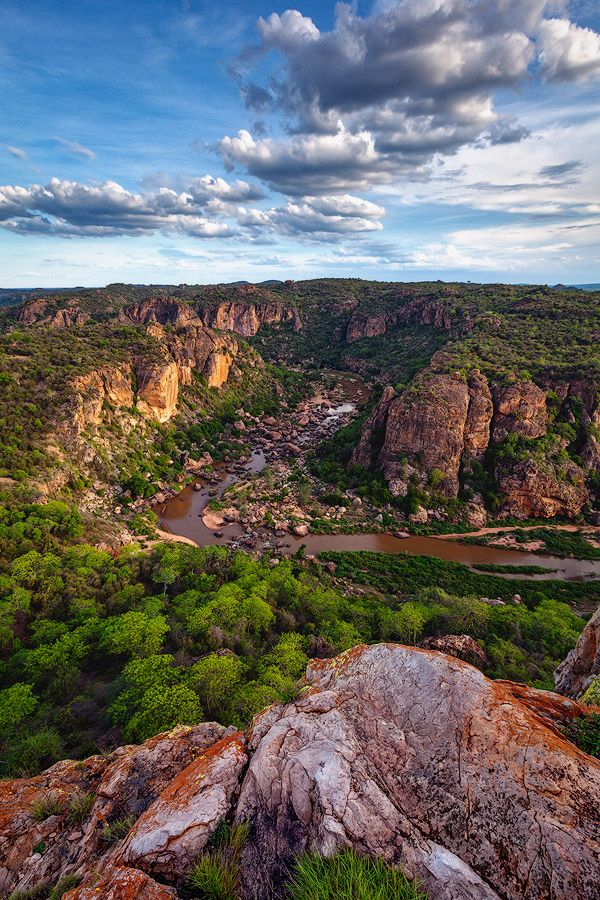Page 19 of 21
Re: The ABC of Kruger
Posted: Sat May 23, 2020 10:53 am
by Richprins
Leeupan
(Lion Pan)
Natural pan and very old and popular tourist attraction on the H1-2 between Skukuza and Tshokwane.
 viewtopic.php?f=263&t=10304&start=10
viewtopic.php?f=263&t=10304&start=10
Re: The ABC of Kruger
Posted: Sat May 23, 2020 11:41 am
by Lisbeth
Lake Panic Hide
S42 close to Skukuza.
Re: The ABC of Kruger
Posted: Fri May 29, 2020 10:45 am
by Richprins
Re: The ABC of Kruger
Posted: Fri May 29, 2020 10:52 am
by Richprins
Lubyelubye
Small tributary of the Sabie river that joins just north of Lower Sabie camp.
The striking rock formations at the confluence and bridge there provide stunning views and it is prime predator country!

© Ratel


© Bushcraft
This spruit is a tributary to the Sabie and was named after
the Tsonga ideophone: “labya”. It means; “ to go through the
water in one’s clothes” - Vd Wateren
https://africawild-forum.com/viewtopic.php?f=263&t=745
Re: The ABC of Kruger
Posted: Tue Oct 20, 2020 10:56 am
by Richprins
Lanner Gorge
Named after the Lanner Falcon sometimes seen there, this spectacular gorge stretches along the Luvhuvhu river north of Punda Maria. It is inaccessible to tourists except for those on the Nyalaland Trail, and some from the private Pafuri camps.

Pinterest
Re: The ABC of Kruger
Posted: Wed Oct 21, 2020 10:53 am
by Richprins
Langtoon Dam
Dam in the Nkulumbeni Spruit east of Babalala. The Afrikaans name for the Jacana. Not accessible to tourists.
The dam was built in 1974 as the eastern boundary fence was going through the area. It was to compensate for lost watering opportunities at pans on the Mozambique side, especially for the roan antelope found in the area.
Demolished by man, not floods, as part of the water point plan.
Re: The ABC of Kruger
Posted: Sat Oct 24, 2020 9:19 am
by Alf
Lamont waterhole
on the S55 close to Shingwedzi

This borehole, north of the Shingwedzi camp, was named by Dr Pienaar after WH Lamont. Bill Lamont served as a game ranger from 1942 to 1950. (Vd Wateren)
Re: The ABC of Kruger
Posted: Sat Oct 24, 2020 9:24 am
by Alf
Letaba camp
The idyllic Letaba Rest Camp is situated on a sweeping bend of the Letaba River, midway between the southern and northern boundaries of the Kruger National Park, South Africa. At Letaba Camp you can choose between a guest house, cottage, bungalow, hut or a furnished safari tent, as well as camping and caravan sites for your lodging in Kruger Park.

- 0D879AA6-A697-421D-9C39-354FED857389.jpeg (70.61 KiB) Viewed 578 times
Re: The ABC of Kruger
Posted: Sun Nov 08, 2020 1:36 pm
by Alf
LUVUVHU RIVER
This river can be found in the northern section of the park.
Driving over the river on the bridge on the H1-9 one gets to see a wonderland

- DA44F05E-1E39-47EB-A5CE-DF5AB46E4074.jpeg (106.85 KiB) Viewed 563 times
This river continues and also passes the Pafuri picnic area

- A123B8AD-6191-4626-8AF6-70704F0861D3.jpeg (97.92 KiB) Viewed 563 times
A further few kilometers down the road it finally joins the mighty Limpopo river at crooks corner

- D11672E7-8D66-4E95-88AA-141377A989BF.jpeg (73.07 KiB) Viewed 563 times
Named after the river bushwillow Combretum erythrophyllum called “muvuvhu” in Venda. Earlier travellers referred to this tree as “red leaf”. The wood of this tree is reputed to be poisonous. (Vd Wateren)
Re: The ABC of Kruger
Posted: Sun Nov 08, 2020 1:57 pm
by Lisbeth
Limpopo River
Six major rivers, and many tributaries, stretch across the wilderness of this incredible park, with the Crocodile River forming the southern boundary and the Limpopo the northern boundary. The other major rivers in Kruger are the Olifants, Sabie, Letaba and Luvuvhu
This name was derived from the Ndebele word “ilimphopho” meaning “the river of the waterfall”. This proves to be true in the river’s upper course, where such a feature occurs. It was here where the Ndebele people used to source their water from, as crocodiles and hippo’s would not be present where too many rocky outcrops and rushing water occurs. (Vd Wateren)




